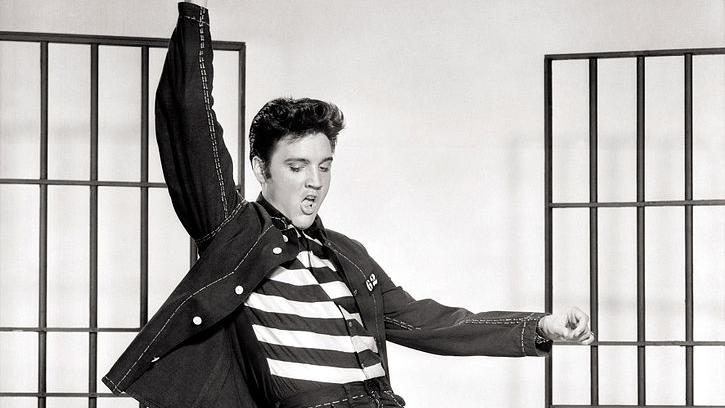Authors:
Historic Era:
Historic Theme:
Subject:
February/March 2005 | Volume 56, Issue 1


Authors:
Historic Era:
Historic Theme:
Subject:
February/March 2005 | Volume 56, Issue 1

The Year 2005 contains two major anniversaries in American popular music. It marks 50 years since 1955, when rock ’n’ roll first conquered the pop singles chart, and also what would have been the seventieth birthday of Elvis Presley (who was so young when he made his initial breakthrough that his father had to co-sign his first contract with RCA Records for him). For Elvis, the timing was perfect. However, in terms of my own appreciation of both occurrences, the timing was completely off.
My father was born the same year as Elvis Aron Presley, and I came along a season or so after the King returned from the Army. My dad was slightly too old to be part of the demographic that made Elvis a superstar, and I was too young to get it. When I was first starting to notice pop music, in the 1970s, it was in a fallow period. I was caught between disco and punk, and neither appealed to me. Rock ’n’ roll was music that my parents’ generation liked. It meant the Stones, the Dead, Hendrix, Dylan, and other figures whose attraction still remains beyond my comprehension. (To this day the only records I have by them are LPs from my late dad’s collection.)
By 1977, the year both Elvis and Bing Crosby died, I had already infiltrated my father’s jazz stash and begun working forward from Armstrong’s Hot Fives and Bix through Duke Ellington, Charlie Parker, and John Coltrane. Along the way I also discovered Frank Sinatra, Ella Fitzgerald, and the great American songbook. Rock ’n’ roll remained for me a bizarre thing that held some strange fascination for zillions of people but that I just couldn’t get started with. One thing that I did have in common with most rock fans of my generation was that none of us knew what to make of Elvis Presley. By the time of his death he was a joke to high school kids born in the sixties and who listened to the Sex Pistols (whose Sid Vicious savaged both Sinatra and Presley in his parody of “My Way”), David Bowie, Kiss, or, in my case, Bing.
Elvis Presley seemed like a caricature in his last few years, but a caricature of what we didn’t know, since we had never experienced him in his glory days (which had been only, in fact, a few years earlier). With those capes and jump suits, he appeared to belong with Liberace. His demotion from king to laughing-stock was confirmed for me in the eighties and nineties, when he was increasingly spotted walking the earth, always by hayseeds: Elvis pumping gas, Elvis driving a pickup truck, Elvis ordering a bucket of chicken from the Colonel (Sanders, not Parker). But for years two people I revered, the critic Gary Giddins and the writer and editor Robert Gottlieb, kept telling me I